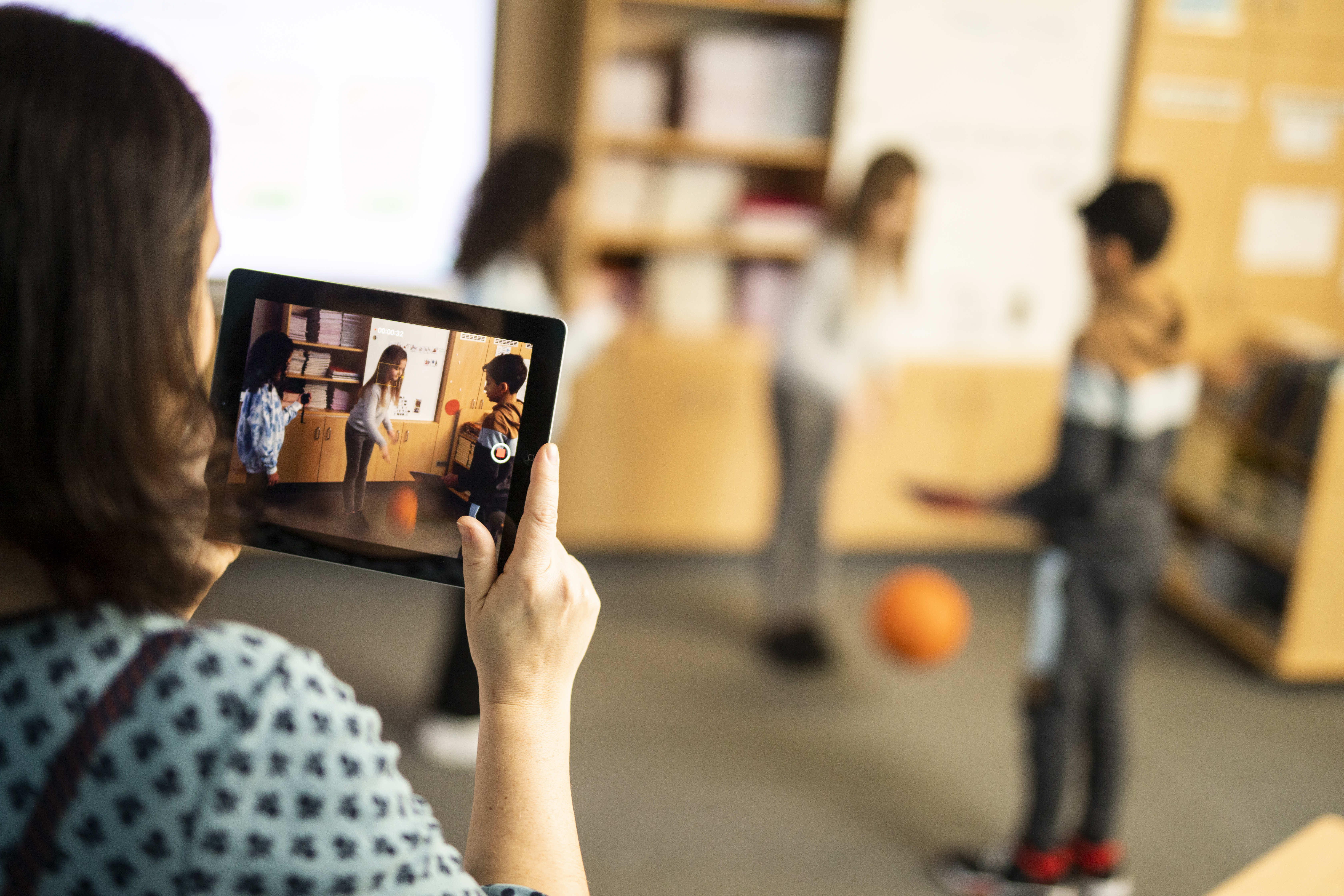
Multimodal classrooms
Here you will find videos of two webinars and a panel discussion about practical classroom activities that use a multimodal approach to increase learner engagement. Our speakers explore multimodal assessments and how they can be used effectively with your learners. You also learn how to use different media and technology to create more engaging classroom activities. The live event took place on 1 August 2024.
About the sessions
Session 1: How can we design multimodal assessment tasks?
Speaker:
Tineke Brunfaut and Judit Kormos (UK)
Session information:
Instead of using assessments with just one mode (e.g. text) why not add images, video or audio and make it multimodal? The workshop starts by explaining the advantages of using multimodal assessment tasks in the language classroom. You then see examples of two types of multimodal tasks, try out a task and get advice on how to create similar tasks. You also learn how to make such tasks with common software and copyright-free materials.
Session 2: How can we make engaging listening activities with technology?
Speaker:
Chiara Bruzzano (Italy)
Session information:
In this interactive webinar, you learn how listening works based on research and whether listening really is the 'Cinderella' skill – ignored, neglected and not given importance compared to its stepsister, speaking. You then critically evaluate the effectiveness of a listening activity and learn how to make your listening activities more engaging and more conducive to the development of listening. Finally, you learn about free online tools you can use in engaging listening activities.
Session 3: Panel discussion: How do we integrate digital tools?
Speakers:
Nour Al-Huda (Saudi Arabia), Agnieszka Burzyńska (Poland), Mary Rose Banaag Soriano (Philippines)
Session information:
Our panel of expert teachers show you three ways to integrate digital tools that will really engage your English language learners.
This video will be available again shortly.
About the speakers
Tineke Brunfaut is Professor of Applied Linguistics at Lancaster University (UK), where she specialises in the areas of language testing, and second language listening and reading. She has worked with teachers and ministries of education on language exam reforms in Austria and Luxembourg, and conducted assessment research and training for the British Council in Bangladesh, the UK and Sri Lanka.
Judit Kormos is a Professor in Second Language Acquisition at Lancaster University (UK). She has published widely on the effect of dyslexia on learning additional languages. She has advised numerous language testing organizations on their access arrangement policies for test takers with disabilities. Judit has delivered workshops on inclusive language teaching and assessment worldwide.
Chiara Bruzzano is an ELT researcher and teacher trainer. After gaining her PhD at the University of Leeds, she started working in teacher training. She is an MA TESOL tutor at the University of Leeds and Universitat Oberta de Catalunya, and also works on a research project for the British Council on access to higher education for forced migrants. Chiara blogs for the journal Modern English Teacher, and you may know her from the popular LanguageEd newsletter.
Nour Al-Huda is a qualified and passionate online teacher of young adults and adults from Syria, based in Saudia Arabia. Four years ago she launched her first online speaking club, designed to help young adults power up their English speaking skills and broaden their horizons.
Agnieszka Burzyńska is an English teacher at Film School in Lodz, Poland and also teaches methodology in the English Language Centre. She very often uses technology in the classroom and also loves filmmaking, film language, role-playing, drama, and improv.
Mary Rose Banaag Soriano is a business English teacher from the Philippines with more than 15 years in training and development. She focuses on tailored training programmes in English communication skills for B2B and B2C clients. She is also a certified TOEFL trainer.
Which ideas from these sessions would you like to try with your classes? Why?